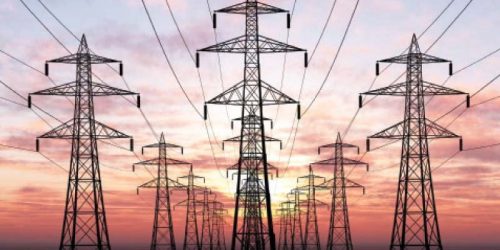ISLAMABAD:
As the circular debt continues to plague the energy chain, the government plans to decentralise the power sector in order to incentivise devolved generation and distribution in future under the new National Electricity Policy 2021.
According to a draft of the policy, all rules/regulations shall be made in a manner which shall ensure decentralisation of the power sector in order to incentivise devolved generation and distribution in future.
It further revealed that stranded costs of the power sector have been observed as counterproductive for future investments.
In this regard, viable solutions may be explored separately. However, the Power Division said that the stranded/past costs must not be part of the policy in order to encourage future investments in the power sector.
In the vision of the policy, it further said that the term of liquid market may be not understandable.
Therefore, the phrase should be amended to give an impression of a competitive market. It added that the provision relating to deduction of power receivables at source, should be suitably reworded to the extent of the amount only agreed by the provinces, to be adjusted in accordance with the procedure as laid down in the constitution.
In connection with reducing reliance on imported fuels for the generation mix, it focuses on use of local fuels. In this regard, Thar coal from Sindh province may also be indicated.
The policy will also focus on resolving load-shedding. In this regard, the provincial government shall have to ensure facilitation in recovery of electricity bills and prevention of theft of electricity.
Section 14 (A) of Regulation of Generation, Transmission and Distribution of Electric Power (Amendment) Act 2018, states that “the federal government shall, from time to time, with the approval of the Council of Common Interests, prepare and prescribe a national electricity policy for development of the power markets”.
The NEPRA Act 2018 further provides the contours for the national electricity policy, inter-alia development of systems based on optimal utilisation of resources, development of efficient and liquid power market design, integration of national and provincial transmission systems and development of a sustainable renewable energy market.
Accordingly, the draft for the National Electricity Policy was initiated taking into account inter-alia the chronological background of the sectoral policy and regulatory frameworks, earnings and plans of the federal government to ensure provision of secure, sustainable and affordable supply of electricity to the end consumers.
The policy document had evolved through (both intra and cross-sectoral) series of consultations, with the relevant stakeholders.
These developments had eventually enabled formulation of the National Electricity Policy draft, which shall enable all-inclusive development and operations of the power sector on sustainable contours.
The draft policy identified, inter-alia, major goals to be achieved and provides overarching policy directives.
It also provided the key guiding principles to develop subservient frameworks that would steer the decision-making in the electricity sector to achieve the identified goals.
Following the enactment of national electricity policy, the national electricity plan shall be formulated that shall enable operationalization of the policy directives.
In pursuance of the aforesaid developments leading to the formulation of refined draft, the same was circulated among the provinces and other stakeholders for comments/inputs in February 2020.
Further, consultative session was also organised by the Power Division on December 28, 2020.
The draft National Electricity Policy after incorporating suggestions, amendments and modifications of the stakeholders would be placed, in accordance with Article 153 & 154 of the Constitution of Islamic Republic of Pakistan, read with federal legislative list part (II) entry (4)Electricity) for approval of the Council of Common Interests.
Sindh observed that the policy should also indicate appropriate measures to ensure water apportionment accord among the provinces while implementing the hydropower projects.
In response, the federal government observed that this issue was not relevant to the electricity policy; rather it was Indus River System Authority’s (IRSA) mandate





